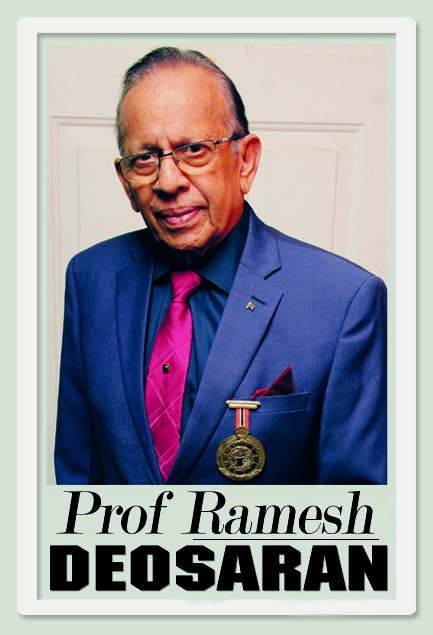Schools, cradle of inequity

Education, it is repeatedly said, "is the passport out of poverty," "the key to progress," etc.
While I too believe in such promises, I worry that school outcomes persistently favour some over others. Given the disturbing rate of delinquency, dropouts, youth crime and juvenile homes’ enrolment, these fall-outs from many parts of the education system compel an indepth look at the education system itself.
I say “many parts” because you will not find such debilitating problems in the “prestige schools,” which raise the most fundamental challenge of all: why are some secondary schools so much better than others? Does it largely start from the primary school intake? Is it the dual system? How is the Ministry of Education dealing with this? There is an SOS here.
As analysed in my 2016 book, Inequality, Crime and Education: Removing the Masks, the Ministry’s National Test Report once showed a remarkable difference among school types for mathematics and language arts. For mathematics at standard one (mean scores percentages): private schools 61, denominational 50, government 48. There were similar scores for languages, and also at standard three. The economics of education reared its head here with the private schools getting highest scores – and the same at SEA.
A five-year study (2008-2012) also showed students from denominational schools getting twice as much, with five or more CSEC passes (Caribbean Secondary Examination Certificates), compared to government-school students. The difference is similar with CAPE (Caribbean Advanced Proficiency Examination).
Academic success is linked to school discipline and character. These statistical glimpses show the persistent inequalities (proportional) in the education system. The ministry should now publish similar trend data in its annual administrative reports to show taxpayers how the $8 billion education system is working or not working.
A lot of citizens are concerned.
Louis W Williams, for example, in his newspaper analysis (October 3) of teaching, schools and career inequity, concluded: "I am of the considered view that our education system needs a complete citizens overhaul from pre-school to tertiary level."
In his recent UWI lecture, visiting professor Pedro Antonio Noguera, noting the achievement imbalances in the education system, said while we have "top students" in certain schools, "I also know that within certain schools that kind of success is less likely, and instead of being anxious about opportunity, our schools produce inequality."
Education Minister Dr Nyan Gadsby-Dolly said: "We must redefine and rethink our paradigm to meet the educational needs of this generation and the next generation…Educational success entails school performance, student performance and the achievement of 21st-century skills."
Where is the data? Which brings us to my university colleague Prof Theodore Lewis's repeated calls for "measuring school performance." Comparing Scandinavian countries, he added: "We have one of the most punitive education systems in the world."
Alongside her attractive announcements, Dr Gadsby-Dolly should provide data on the concrete impact the ministry’s policies have had or are having with regard to the objectives stated.
Teachers now complain that even at Form One, "students can’t read," some classes are battlegrounds, absenteeism is almost the norm,
The "passport" and the "key" work for some, not all. The promises mask the educational realities.
This "equality of opportunity" to write the SEA, however, does not take into serious consideration that not all students come from the same starting point, for example, from the same high-achieving primary schools.
With the privileges granted to the denominational school boards, many of which contain high-achieving schools, the inequity persists with democratic circularity. That is, parents and students put these high-achieving secondary schools (eg scholarships discipline, etc) as their first choice after passing the SEA from high-achieving primary schools. And so, the schooling system becomes the cradle for persistent inequity by deficient parenting, social class and economic background.
Now while all societies are socially stratified in varying degrees, our challenge arises when students from particular social, gender and ethnic groups consistently succeed while others do not. This brings social injustice to our inherited ethnic diversity
The big question is, how deeply rooted are these school conditions, student choices and cultural values to resist policy changes towards equity? Applying political muscle for changes has electoral implications. How far then, can “softer” government policies, eg bursaries ($28 million, 280 students), subsidised entrepreneurial training, widening information technology, etc, go in creating improved balance within social stratification?


Comments
"Schools, cradle of inequity"